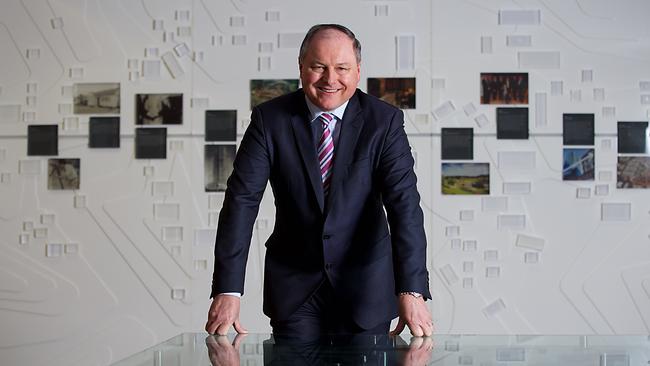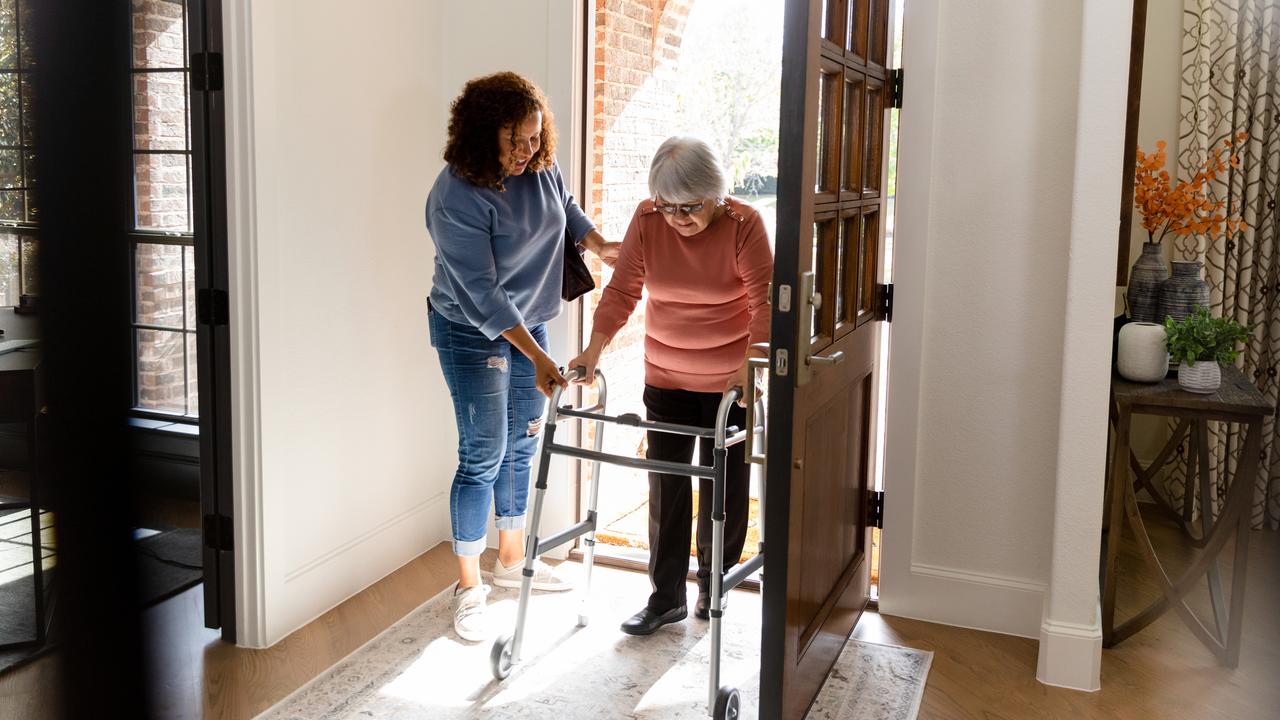Stockland chief rode coronavirus wave
Stockland chief Mark Steinert’s move to retire from the company after a near eight-year reign has taken the market by surprise.

The change at the top of Australia’s largest listed residential developer Stockland was a long time coming. But Mark Steinert’s move to retire from the company after a near eight-year reign took the market by surprise.
Uncertainties generated by the coronavirus crisis are still raging across the property sector and Stockland is in the crosshairs of many of the biggest challenges.
Steinert’s departure, which will be complete once a successor is appointed, could mark a shift in how Stockland operates, after a 2020 in which was battered as the market briefly lost confidence in its business model.
It has since ridden the wave created by government stimulus packages and rock-bottom interest rates. Stockland leads residential development on the outskirts of major cities and in regional centres. Some, like the Sunshine Coast’s Aura, are so large they are almost mini-cities.
It also owns one of the country’s largest retail portfolios, though it appears to have dodged the deepest part of the crisis which has snared its more luxury-focused rivals.
But the company is likely to be further shaken up as the property sector bumps through a difficult period with writedowns and lower dividends in the offing.
Stockland is alive to the challenge though, and has already sought to make some of its developments into mixed-use assets, with schemes like putting retirement facilities next to shopping centres. It is also using the vast tracts of land around its housing estates for logistics parks. Steinert took Stockland into new areas like its land lease business, and forged back into logistics property and office markets.
SG Hiscock & Co director Grant Berry said the Steinert was a good thinker and also pointed to his leadership in sustainability, a future driver of value.
“We would expect Stockland to continue to be at the forefront of this mega trend,” he said.
He also pointed to company’s dominance in land estates and delivering affordable product in key city growth corridors. Mr Berry praised Stockland’s quality town centres but argued the sell-down of lower quality assets could have started earlier, though the company did carve off a tranche of unwanted malls.
“Overall, Stockland is a well-placed business for the longer term,” Mr Berry said.
“Delivering affordable residential product to Australians, town centres for communities, and the building up of an industrial land bank has them well positioned for some subtle appreciation of more space and community transitioning from a pre-COVID-19 world.”
Analysts say a new boss will need to do more to accelerate change at the company which is looking to execute a $4.4bn commercial property development pipeline at a time when tenants are nervous.
Jefferies’ Sholto Maconochie said Stockland had underperformed on share price and NTA growth during Steinert’s tenure.
A new chief executive was likely to speed change. “While Steinert attempted to move away from the former CEO’s 3R strategy, he was too slow to sell retail, sold office too early, and failed to meaningfully bring in capital partners.
“He inherited a business in need of repair and leaves it in better shape than when he arrived for the incoming CEO,” Mr Maconochie said.
CLSA analyst James Druce last week downgraded Stockland to a “sell”, reflecting its recent strong run over the past months, as retail reopens and the government injects stimulus into the residential market.
“We see an increased risk of a rebase to earnings and asset values when the new chief executive arrives, particularly in retail and retirement,” he said.
“A new CEO will need to reduce frictions to execute a new strategy. If that involves allocating capital away from retail/retirement, then asset values may need to be written down faster to meet the market. In any event, asset recycling is likely to increase, which is likely to be earnings per share-dilutive,” Mr Druce said.
He identified the top internal candidate as residential head Andrew Whitson, with outside competition from Lendlease’s Kylie Rampa, Mirvac’s Campbell Hanan and Abacus head Steven Sewell.
Steinert says the company was able to trade safely through the worst of the virus period and has sprung back from making just 137 residential sales in April. Inquiry was now back to around pre-COVID levels, with “material growth” since the HomeBuilder package kicked into gear.
He is a bull on the residential market with plunging interest rates making it more compelling to buy than to rent in many areas and 70 per cent of people near its estates “positively or neutrally” affected by the crisis.
“I think Australia is well positioned, particularly if we keep focusing on cutting red tape, fast-tracking delivery of infrastructure, and really working to grow and compete with the rest of the world,” he said.








To join the conversation, please log in. Don't have an account? Register
Join the conversation, you are commenting as Logout